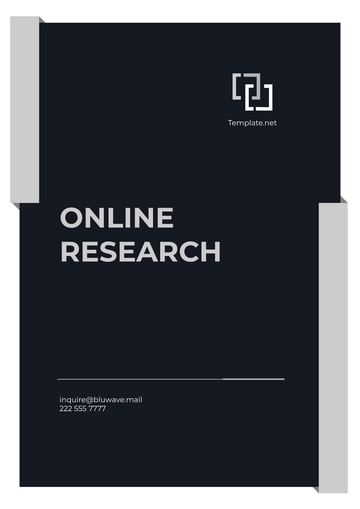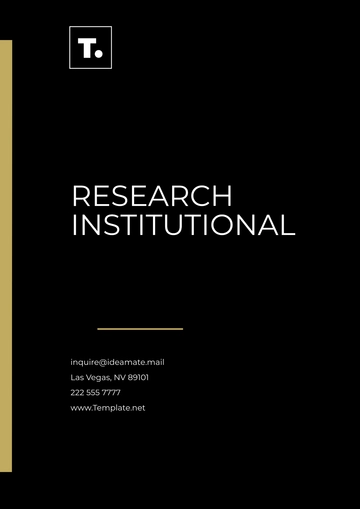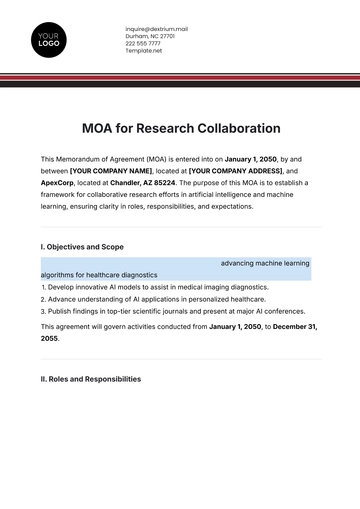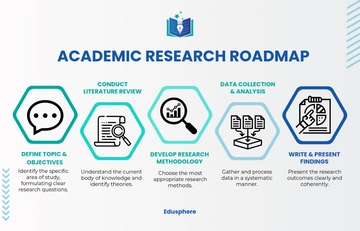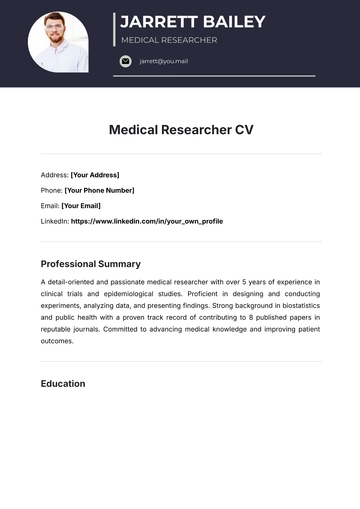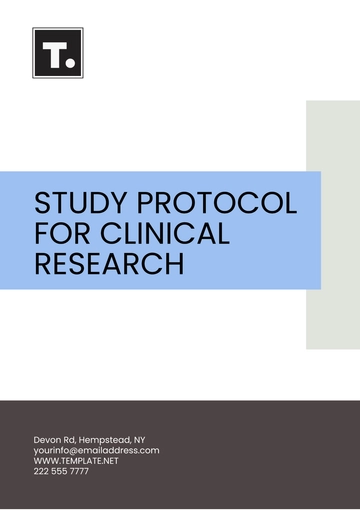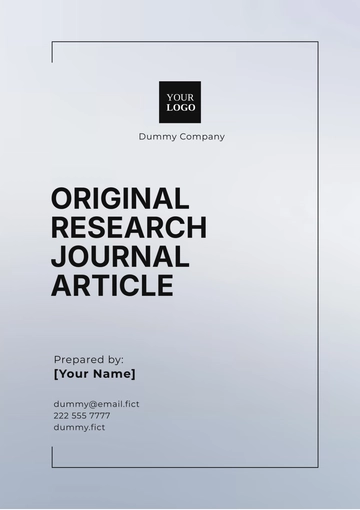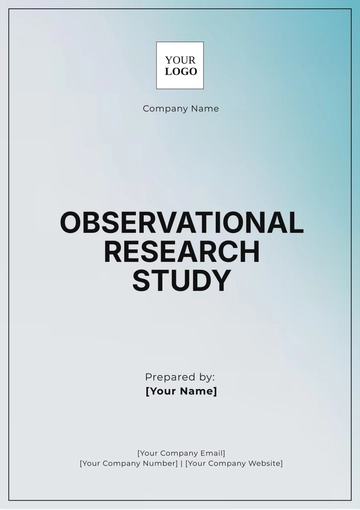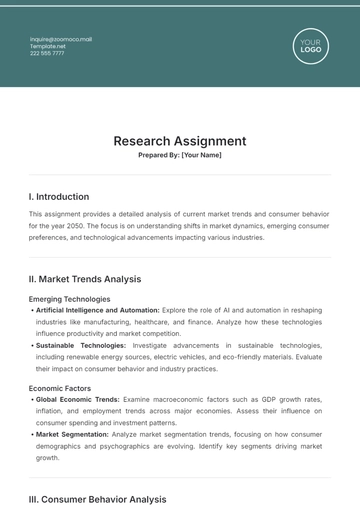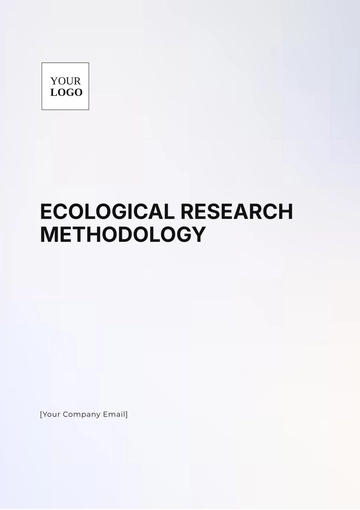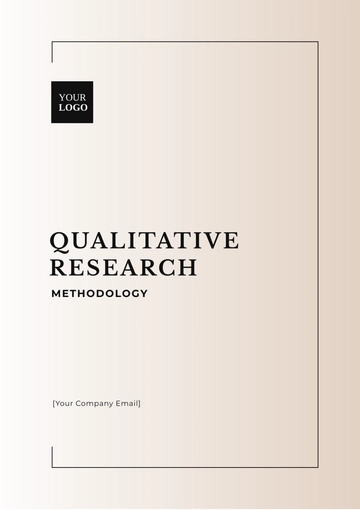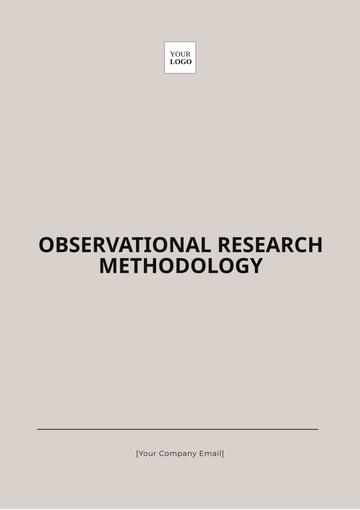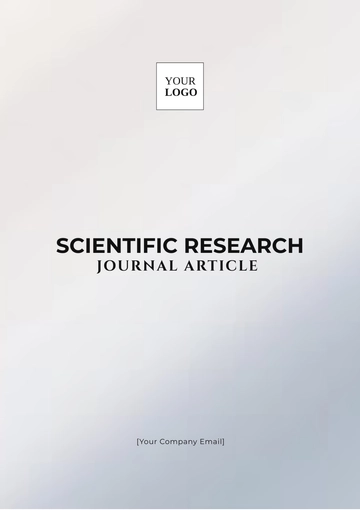Free Expenditure Tracking Research Process
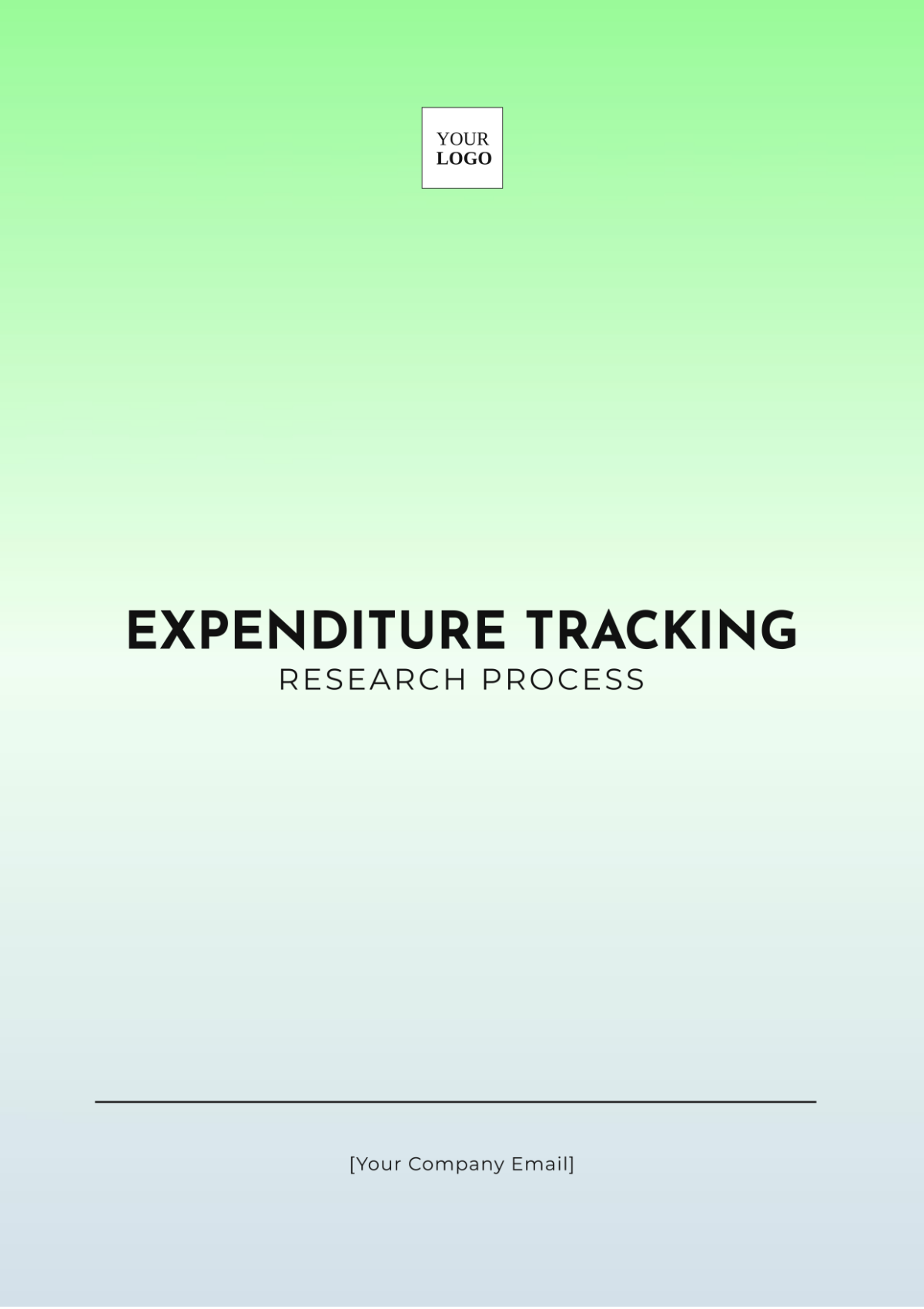
Researcher: [Your Name]
Date: [Date]
I. Introduction
An Expenditure Tracking Research Process is a systematic approach to monitoring and analyzing how funds are allocated, spent, and managed within a specific organization, project, or government program. The purpose of this research is to enhance financial oversight, ensure accountability, and improve the efficiency and effectiveness of fund utilization. As financial systems become increasingly complex, particularly in the mid-21st century, this research is critical for adapting to new economic realities. This study, conducted in 2050, aims to present a comprehensive framework for executing an expenditure-tracking research process, tailored to the challenges and opportunities of the modern financial landscape.
II. Methodology
The methodology section outlines the steps and strategies used to conduct the research. Given the advancements in financial technologies and data analytics by 2050, the approach for this study involves the following stages:
Establishing Objectives and Scope
The first step is to clearly define the goals of the expenditure tracking research. This involves determining the scope of the research, identifying the key financial metrics to be tracked, and establishing the parameters for data collection and analysis.Data Collection
Data collection is a critical phase where relevant financial data is gathered from a variety of sources. These sources include traditional financial records as well as digital financial platforms, blockchain-based transaction logs, and AI-driven financial monitoring systems.Data Analysis
The collected data undergoes rigorous analysis to identify spending patterns, assess compliance with budgetary guidelines, and evaluate overall financial performance. Advanced analytical tools, including machine learning algorithms and predictive analytics, are employed to gain deeper insights.Reporting and Recommendations
Finally, the research culminates in a detailed report that presents the findings and offers actionable recommendations. The report is tailored to different stakeholders, ensuring that it addresses the specific needs of financial managers, auditors, and policy makers.
III. Data Collection
Data collection is a crucial stage of the expenditure-tracking research process. In 2050, this process involves gathering financial data from both traditional and cutting-edge sources, including:
Budget Reports
Financial Statements
Purchase Invoices
Transaction Records
Expenditure Logs
Blockchain Transaction Histories
AI-driven Expense Monitoring Systems
This data is collected from various sources within the organization or program, such as accounting departments, finance teams, project managers, and external auditors. Additionally, automated data collection systems play a significant role in real-time data acquisition, ensuring accuracy and efficiency.
IV. Analysis
The analysis phase involves a thorough examination of the collected data. The objective is to assess spending patterns, identify discrepancies, and evaluate the alignment of expenditures with budgets and financial goals. Given the advanced state of financial analytics in 2050, key analysis techniques include:
Variance Analysis
Trend Analysis
Break-even Analysis
Cost-Benefit Analysis
Predictive Financial Modeling
AI-driven Anomaly Detection
This phase also includes the use of advanced analytical tools and software, such as quantum computing-powered financial models and AI-driven data visualization platforms, to facilitate data interpretation and decision-making.
V. Findings
The findings from the analysis provide insights into the financial health and spending practices of the organization or program. Common findings might include:
Area | Findings |
|---|---|
Budget Adherence | Overall adherence to budget with minimal variance |
Spending Patterns | Seasonal fluctuations influencing quarterly expenditures |
Cost Efficiency | Identification of potential cost-saving opportunities |
Predictive Insights | Forecast of future spending trends and potential risks |
VI. Recommendations
Based on the findings, the research offers several recommendations to improve expenditure management:
Implement stricter budget controls and monitoring mechanisms
Enhance training for financial managers on efficient spending practices
Adopt advanced financial management software to ensure real-time tracking
Establish a formal review process for all major expenditures
Integrate AI-driven predictive tools to anticipate future financial challenges
Leverage blockchain technology for transparent and secure financial transactions
VII. Conclusion
The expenditure-tracking research process is essential for ensuring financial accountability and efficiency within organizations, projects, or government programs. By systematically tracking and analyzing expenditures, stakeholders can make informed decisions to enhance financial performance and achieve strategic objectives. This study, conducted in 2050, underscores the importance of a structured approach to expenditure tracking, adapted to the technological advancements and economic conditions of the future, and provides a robust framework for effective financial management.
VIII. References
Smith, J. (2050). Financial Management for Nonprofits in the 21st Century. New York: Financial Press.
Jones, A., & Brown, E. (2052). Principles of Government Budgeting. London: Governance Publications.
Doe, R. (2051). "Effective Expenditure Tracking in Public Sector Projects." Journal of Public Administration, 88(2), 123-135.
- 100% Customizable, free editor
- Access 1 Million+ Templates, photo’s & graphics
- Download or share as a template
- Click and replace photos, graphics, text, backgrounds
- Resize, crop, AI write & more
- Access advanced editor
Manage your research budget efficiently with the Expenditure Tracking Research Process Template on Template.net. This editable and customizable template helps you keep track of financial resources throughout your research. Editable in our Ai Editor Tool, it offers flexibility in adjusting budgetary allocations, ensuring that you maintain financial control and transparency in your research expenditures.


